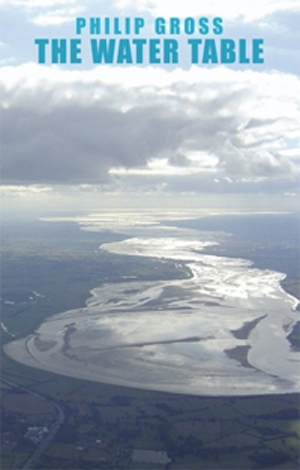
Philip Gross, The Water Table (Bloodaxe Books, 2009)
By Katherine Venn.
Before I’d even read it I remember thinking that Philip Gross’ T.S. Eliot prize-winning, ‘The Water Table’ would be the kind of poetry collection that readers of Caught By The River would enjoy, dealing as it does with the land (and water) scape of the Bristol Channel. Like Alice Oswald’s ‘Dart’ and ‘Sleepwalk On The Severn,’ it’s a mesmerising contemplation of a body of water that doesn’t view its subject as a passive object, or even just a feature of the outside world, but instead as something with its own powerfully ambiguous agency. And not just a force of nature either, but something that we sense, strangely, as having its own mind, that has its own way of thinking:
A body of water: water’s body
that seems to have a mind (and
change it: isn’t that what makes
a mind, its changing?)
This sense of change and movement as an analogue for thinking is a thread that runs throughout the collection, most emphatically in ‘Betweenlands VIII’ when we have the utterly convincing lines ‘the way water thinks // its one brilliant thought: falling’. And in the wry ‘Atlantis World’ the sea doesn’t just think, but also decides on a course of action:
One day the sea thought No. It wouldn’t. Just wouldn’t. It withdrew
to the doors of the straits, like an Ice Age instituted overnight,
like an empire in-turned behind walls of glittering indifference
to the mess outside.
Where does that leave us, the baffled world? Depressingly keen to plunder and divide this new reclaimed territory, eventually firing shots, until ‘The sea gave an audible sigh / and came back in.’ Water isn’t quite imagined as conscious, but it seems to be on the way there – or is perhaps the bed of our own consciousness, the place from which we all emerged, millennia ago –
the original land we knew before
the first foot- or hoof-print, before
the astonishment of grass, before
there was a way to know before.
Full of locks, sluices, mud, paddle-steamers, underground rivers, bridges and all the various objects that populate an estuary, the collection as a whole is a meditation that makes the familiar seem strange , or perhaps points up the strangeness of what we take for granted. Nothing is quite what it seems in an endless shifting and negotiation between land and water, the land itself ‘untenable… indefinable… mortgaged’ – always at the risk of being submerged. The final poem, ‘Severn Song’, deals very plainly with this idea of liminality, with things being ambiguous: is the Severn brown or blue? Water or mud? River or sea? The unsettling answer is, of course, both –
not this-then-that, not either-or,
no mixture. Two things can be true.